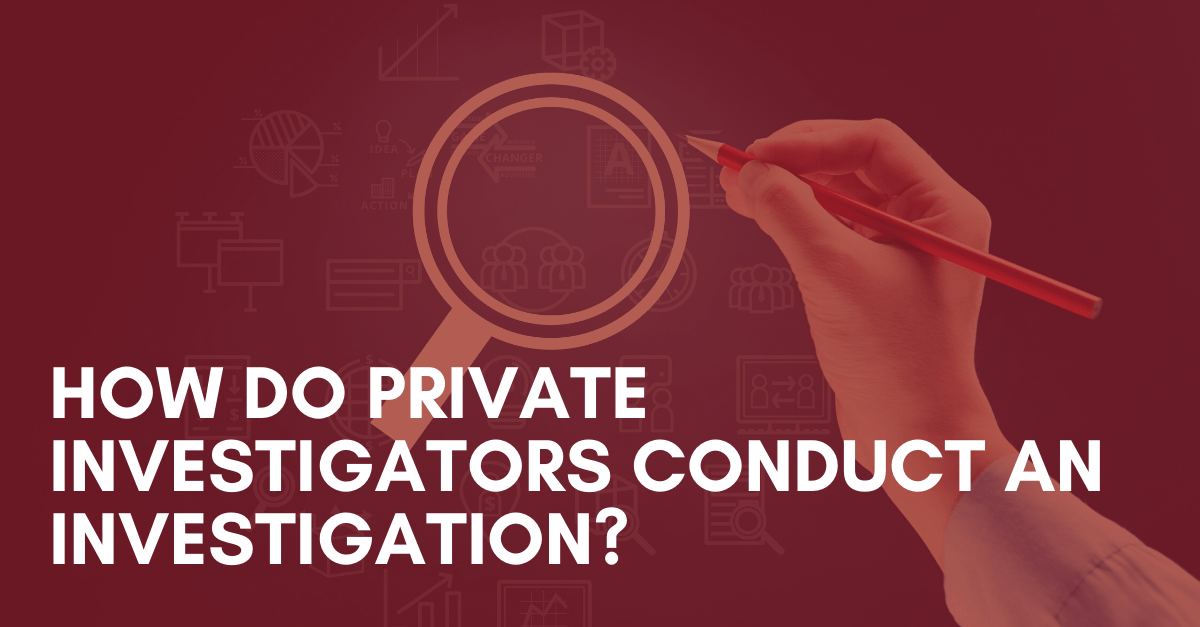There are a variety of cases a private investigator may take on. Some of these include finding lost or stolen property, proof of an unfaithful partner, proof of an unreliable and dishonest business partner, a missing person, a perpetrator of an unsolved crime. These are only some of the types of cases private investigator may pick up.
Besides these exciting projects, a PI’s most common services include serving documents, and notifying someone of their potential involvement in legal proceedings. If you are interested in this side of private investigation, have a look at some of our articles concerning background checks and subpoenas. This is especially common in the US.
With some of these examples in mind, one may often wonder private investigators perform their jobs. How do they track down individuals or their belongings? How do they perform an investigation? Those are some of the questions we’ll be answering in this article.
What Does a Typical Investigation Include?

A PI’s caseload will most often include background investigations and checks, surveillance, skip-tracing and searches (physically and/or in databases). Their job routine will depend a lot on their speciality. The most commonly tackled cases are also dependent on the region a private investigator or agency find themselves working in. PIs in New York City, for example, often work for landlords, to make sure their tenants are not breaking the agreements of the agreed-upon lease.
A major factor to consider is also the type of case a private investigator is working on, which goes along with their speciality. A private investigator specializing in corporate fraud or intellectual property won’t be spending much time staking out seedy locations in the search of an unfaithful spouse. They would most likely spend most of their time researching patents, or suspicious insurance claims.
Now this wide array of cases, seemingly unrelated to each other all require one very important thing. The acquisition of information and compilation of facts, which must then be presented as evidence in court.
What Does a Successful Investigation Depend On?
The collection of facts, for instance, is reliant on more than solid intuition, a sharp mind and street-smarts. Solving a case requires a highly disciplined and organized mind and methodology. Planning an approach to the investigation and analyzing readily available information is crucial to getting started. Below are a few ways in which a PI can do this:
- Anylyzing any already existing evidence.
- Gathering new evidence in such a way that it is permissible in court.
- Discussing the case with the client. Finding out if a desired approach is legal and possible.
- Bringing new findings and evidence to the client, and analyzing the said evidence.

Research is the priority in any investigation. And for a solid base in any form of research, multiple sources of information are required. Some of the most commonly used methods by private investigators to acquire information include:
- Surveillance: physically and digitally
- Interviewing suspects and witnesses.
- Public record and database searches. Tax records, business licenses, real estate transactions and DMV records are only some of the public records PIs can access.
Besides collecting this information, private investigators also need to compile the evidence. They need to make sure it is acceptable in court and properly presented. If you find yourself in need of a licensed private investigator and their particular set of skills, please feel free to call us. Or simply click on this link to get in contact with one of our team members.









